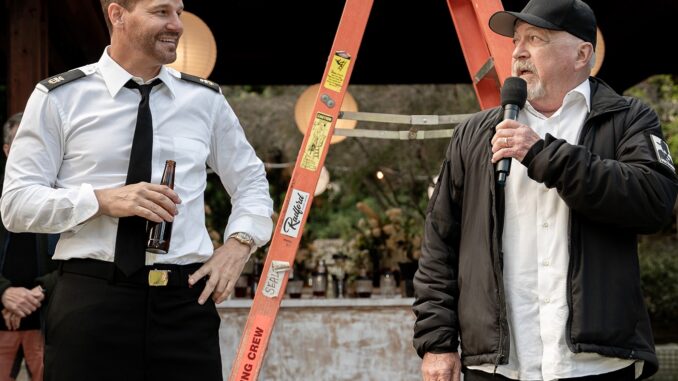
In the world of military operations, particularly within elite units like the Navy SEALs, decisions made in the heat of battle can have lasting ramifications. Jason Hayes, a prominent character in the television series SEAL Team, epitomizes the struggles faced by those who must grapple with the consequences of their past actions. As a seasoned leader and operator, Jason finds himself at a crossroads, where the weight of his decisions impacts not only his own life but also the lives of his team members and family. This article explores how Jason Hayes will confront the repercussions of his past decisions, focusing on themes of accountability, personal growth, and the quest for redemption.
The Burden of Leadership
Jason Hayes, portrayed by David Boreanaz, embodies the complexities of leadership within the high-stakes environment of special operations. As a seasoned Navy SEAL, he has faced countless challenges and made decisions that have saved lives but also resulted in unintended consequences. The burden of leadership is heavy; every decision is scrutinized, and the fallout from those choices can reverberate through the lives of those around him.
One of the most significant aspects of Jason’s character arc is his struggle with guilt and remorse over past decisions, particularly those that have led to the loss of life or injury among his team members. These feelings of responsibility weigh heavily on him, creating a sense of isolation and inner turmoil. Jason understands that as a leader, he must hold himself accountable for his actions, and this awareness drives him to confront his past rather than bury it.
Facing the Past
In order to deal with the consequences of his past decisions, Jason must first confront them head-on. This process begins with reflection and acknowledgment of the mistakes he has made. He often engages in candid conversations with his team, seeking their perspectives and insights. These dialogues not only foster transparency but also create a support system that allows Jason to process his emotions constructively.
Furthermore, Jason seeks to understand the motivations behind his past decisions. By examining the context in which he made those choices, he gains valuable insights into his leadership style and the areas where he can improve. This self-awareness becomes a catalyst for growth, as he realizes that learning from his mistakes is crucial for becoming a better leader and mentor to his team.
The Role of Forgiveness
Another essential aspect of Jason’s journey is the theme of forgiveness—both for himself and for others. As he navigates the repercussions of his decisions, he learns that holding onto guilt and resentment only hinders personal growth. Jason begins to recognize that forgiveness is a powerful tool that can facilitate healing and enable him to move forward.
This process is not easy; it requires vulnerability and a willingness to confront uncomfortable truths. Jason must come to terms with the fact that mistakes are an inherent part of life, especially in a profession as demanding as his. By extending forgiveness to himself, he opens the door to self-acceptance and the possibility of redemption.
Building Stronger Relationships
As Jason grapples with the consequences of his past, he also recognizes the importance of nurturing relationships with his team members and loved ones. The military community is built on trust, camaraderie, and mutual support, and Jason understands that fostering these connections is vital for both his well-being and that of his team.
He actively seeks to strengthen his relationships with his colleagues by engaging in honest and open communication. By sharing his struggles, he fosters an environment where vulnerability is not seen as a weakness but rather as a strength. This shift encourages his team members to open up about their own challenges, creating a sense of solidarity that empowers them to confront their pasts together.
A Commitment to Growth
Ultimately, Jason Hayes’ journey is one of growth and resilience. As he faces the consequences of his past decisions, he remains committed to evolving as a leader and individual. This commitment manifests in his dedication to training and mentoring the next generation of SEALs. By sharing his experiences and lessons learned, Jason not only helps others navigate their own challenges but also reinforces his own resolve to become a better person.
Through his actions, Jason demonstrates that personal growth is a continuous journey. He embraces the idea that setbacks and mistakes do not define him; rather, it is how he responds to them that shapes his character. This perspective becomes a guiding principle as he strives to be a positive influence on his team and an example of accountability and integrity.
Conclusion
In conclusion, Jason Hayes’ journey in SEAL Team serves as a powerful narrative about facing the consequences of past decisions. Through reflection, forgiveness, and a commitment to personal growth, Jason confronts the challenges that arise from his actions. His willingness to engage with his team and foster stronger relationships showcases the importance of community in overcoming adversity. As he navigates the complexities of leadership and accountability, Jason ultimately emerges as a more resilient and compassionate individual, embodying the ideals of honor and duty that define the Navy SEALs.